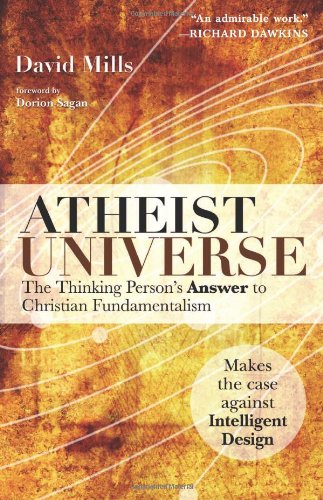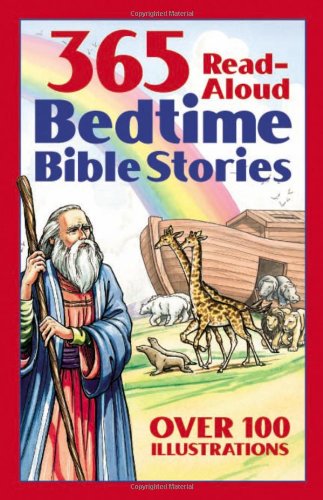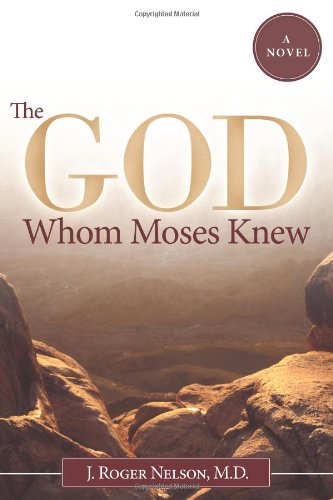Job 14:12, Are you awake down there?
So man lieth down, and riseth not: till the heavens be no more, they shall not awake, nor be raised out of their sleep.
//Here’s something Christians continue to wonder about two thousand years after Christianity’s beginnings. Are dead people conscious down (up) there, or will they remain unconscious until resurrected? Multiple verses tell of the dead “sleeping with their fathers,” connoting unconsciousness. And here’s one to chew on:
Ecclesiastes 9:5, For the living know that they shall die: but the dead know not any thing.
One day, King Saul finds a witch to help him commune with Samuel, who has died. When she “brings up” Samuel, he is pretty cranky about being disturbed.
But what about the parable of Lazarus and Divas? After they die, Lazarus rests in the bosom of Abraham, while Divas looks on from hell.
What about 1 Peter 3:19, where Jesus descends to hell, to preach to the disobedient? Does Jesus have to wake them up first, before preaching?
I take consolation in this: If I go to the bad place, I might be allowed to sleep through it all.
Book review: Atheist Universe
by David Mills
★★★★★
This is a well-written, concise, interesting overview of the argument against Christian fundamentalism … particularly Creationism.
How did the universe come into being? We don’t know. But new discoveries in quantum theory, as well as research done by Stephen Hawking and his colleagues, have demonstrated that matter can and does arise quite spontaneously from the vacuum fluctuation energy of “empty” space.
Intelligent Design? Mills states that “ID’s greatest triumph … has been in convincing the general public that there is a controversy raging among scientists over Intelligent Design. There is no scientific controversy whatever.”
So how did life begin? Well, we know God isn’t necessary. There is no need for spontaneous creation of complex cells; the first cells contained no nucleus at all, consisting mainly of an exterior membrane. Biological membranes form easily and spontaneously from a mixture of water and simple lipids. From there, the evidence for evolution is overwhelming, and Mills carefully refutes argument after argument posed by creationists.
Life after death? Forget having science on your side, here. For example, if the law of the conservation of mass/energy necessitates consciousness after death (because mass/energy can be neither destroyed nor created) then the same law requires consciousness before conception.
There just isn’t any real debate among scientists in these matters. A study in 1998 revealed that, of the membership of the National Academy of Sciences, only 7 percent believed in a personal God, and even fewer in Creation Science or Intelligent Design. The point I took away from the book is this: Religious beliefs must remain beliefs; no more or less. The Bible’s creationist claims are not and cannot be supported by science.

1 Kings 19:2, Jezebel’s Vow
So Jezebel sent this message to Elijah: “May the gods strike me and even kill me if by this time tomorrow I have not killed you just as you killed them.”
//In this verse, the wicked queen Jezebel promises to slay Elijah, in the same manner as Elijah killed all the prophets of Baal in the prior chapter. Jezebel never accomplished her vow. Or did she?
In the New Testament, John the Baptist is compared to Elijah multiple times, and is even spoken of as Elijah redivivus. So how did the New Testament Elijah lose his life?
By the instruction of another queen named Herodias, who demanded the head of John the Baptist on a charger.
Is Herodias, then, the second coming of Jezebel, finally fulfilling her vow?
Got an opinion? 0 commentsJeremiah 22:30, Jahoiakim, the Missing Man
This is what the LORD says: “Record this man as if childless, a man who will not prosper in his lifetime, for none of his offspring will prosper, none will sit on the throne of David or rule anymore in Judah.”
//Here’s a frustrating fellow. Jahoiakim was a Judean king in the lineage of David, son of Josiah, father of Jeconiah. 1 Chronicles 3 lists his genealogy.
But Matthew, when he traces the genealogy of Jesus back to king David, leaves Jahoiakim out in the cold. Skips right over him. Matthew 1:11, And Josias begat Jechonias and his brethren, about the time they were carried away to Babylon.
Why did Jahoiakim get written out of the New Testament by Matthew? A clue comes from today’s verse. The man whose descendants will never sit on the throne of David is this very fellow, Jahoiakim. This promise is repeated in Jeremiah 36:30.
Matthew, knowing that his genealogy contained a major problem … it prevented Jesus from ever “sitting on the throne of David” … does the best he can. He ignores Jahoiakim in the list, perhaps hoping we’ll forget about him. Because, as Luke explains in verse 1:32, the Lord God shall give unto [Jesus] the throne of his father David.
Of course, Matthew himself never said Jesus would sit on the throne of David, and Luke, while making that claim, comes up with a different genealogy that doesn’t route through Jahoiakim. Wow, this guy must have really been a pain to work around.
Book review: 365 Read-Aloud Bedtime Bible Stories
by Daniel Partner
★★★★
I have been on the lookout for a good introductory book for adults to the stories in the Bible, and someone told me this children’s book would actually be a good one. They were right, I read through every story and enjoyed it! It’s a one-year collection of short Bible stories; you get 211 from the Old Testament, and 154 from the New (mostly Acts and the Gospels).
Do be aware that its target audience really is young children. You won’t find any of the Bible’s “adult themes” herein. Rahab isn’t a harlot; she’s just a nice lady. Mary isn’t a virgin. I guess that would be a little too complicated to explain.
365 days wasn’t quite enough for Partner to get through the Bible, probably because of an overemphasis on the teachings of Jesus, so you won’t find a full coverage of the Bible. For example, if there was anything at all about Ezekiel, one of the Bible’s more important prophets, I missed it. I was a little surprised at this, since Ezekiel’s dreams and publicity stunts would make for memorable children’s lessons.
You will, however, find a great deal of attention given to the kings of Israel and Judah, to the destruction of Jerusalem and the Temple, to the deportation into captivity, to the release from captivity and rebuilding of the Holy Land. Excellent; I’m in favor of this emphasis. Few Christians grow up knowing anything at all about Judaism’s past, its defeats, sufferings, and desperate hopes for redemption. This is, after all, the atmosphere which birthed Christianity, for Christ means “Messiah,” the long-awaited redeemer.
Great book, cute pictures, and even I could understand the simple writing. 

Hebrews 2:13, Another year, another resolution
And again, I will put my trust in him.
//As we kick off another new year, let me wish you all good tidings! In whatever form you worship, or wherever you find awe in this wonderful creation, may your happiness and purpose continue!
2011 was the first full year of cyber publishing for The Dubious Disciple. There remains just two of us operating the site, and we’ve had a blast. 2011 was a busy year, with blog posts hitting the web on 363 out of 365 days. I’ve made a number of new friends and had a number of great discussions on various forums where The DD feeds. I want to thank all of the authors and publishers who have shared review copies of their work.
We will be slowing down a little in 2012, but not by much! We plan to continue posting about five days a week, though we’re undecided about which days. Any advice is welcome!
Shalom.
Book review: Hometown Prophet
by Jeff Fulmer
★★★★★
A great story! Fulmer is an interesting writer who knows how to make you keep turning the pages.
Jeff Fulmer’s “prophet” is a 30-year-old hometown nobody named Peter, who can’t hold a job or find a girlfriend. He lives with his mom. Loser, with a capital L. (Jeff admits in the epilogue that he bears some resemblance to Peter, so I probably just lost a potential friend.)
Peter starts having dreams, and the dreams start coming true. He begins attending church, reading his Bible, sharing his prophecies. The dreams escalate to the level of natural disasters, and while they always come true, Peter begins to wonder when he’ll guess wrong about what they mean. Who’s feeding him these prophecies, anyway? God, or some more malevolent being? The plot’s probably been done before, but Fulmer’s writing grabs you and won’t let go.
Not everyone is that enamored of having a prophet in their midst. While the plot line hangs pretty closely to Peter’s prophetic development and the reaction of the world around him, there’s an underlying theme to the dreams, which can be summed up in a story from the Gospel of Luke: The Good Samaritan. Peter explains in a television interview, “Jesus said it comes down to loving our neighbors as ourselves and loving God with all of our hearts.”
This is Christian literature, and Fulmer’s liberal Christian stance shines, and while I appreciated that, I didn’t find the book the least bit overbearing or preachy. I can’t even really categorize it as controversial, because each of us already knows its truths in the depths of our hearts … whether we admit it or not. It’s more of a feel-good, love-your-neighbor journey. Whoever those neighbors are.
And a fun read.

Luke 1:3, Most Excellent Theophilus
Therefore, since I myself have carefully investigated everything from the beginning, it seemed good also to me to write an orderly account for you, most excellent Theophilus.
//With this introduction, the author of Luke’s Gospel begins his work. Many people have wondered: who is this Theophilus dude?
Well, it’s hard to know. We don’t even know who wrote Luke’s Gospel, or any of the other three for that matter. In that era of copyists and manual document propagation, an author and his manuscript very quickly became disconnected. All four of the Gospels were written anonymously, with their authorship deduced and attached in the second century.
We think Luke was written around 80-85 CE, and apparently by this time, a number of other Gospels had already been penned (the author alludes to this in verse 1:1, and purports to have researched them carefully to determine the true events of Jesus’ life). One of these others was Mark’s Gospel, since Luke shows every evidence of having read and copied large portions of Mark into his own rendition, but we don’t know what other sources Luke was drawing from. But none of this helps much in figuring out who Luke was writing to.
Luke was written in Greek, and Theophilus is a Greek name. But this also means little, not even proving that his audience was Gentile. Many Jewish people in the Greco-Roman world had Greek names, and many Jews preferred Greek. In fact, a Jew named Theophilus served as high priest in the Jerusalem Temple for four years, beginning in 37 CE.
The best we have is a stab in the dark: “Theophilus” is a Greek compound of two words: “theos,” meaning God, and “philos,” meaning love. The author of Luke may have meant to address his Gospel simply to any “lover of God.”
Hebrews 11:13, Strangers and Pilgrims
These all died in faith, not having received the promises, but having seen them afar off, and were persuaded of them, and embraced them, and confessed that they were strangers and pilgrims on the earth.
//Hebrews chapter 11 is sometimes called “God’s honor roll,” because it lists many of the Old Testament’s faithful figures, concluding that they could see into the future to the coming age. As Hebrews reports, they were “strangers and pilgrims” in a foreign world, waiting for the glory of God’s new age.
But how far, exactly, did these faithful men see into the future? When would the glory of God be revealed?
The book of 1 Peter is still waiting. Verse 2:11 reads, Dearly beloved, I beseech you as strangers and pilgrims, abstain from fleshly lusts, which war against the soul.
But the author of Ephesians (probably not Paul) has a different opinion. Ephesians contains an undercurrent of “realized eschatology;” that is, the doctrine that the new age has already begun. Verse 2:19 reads, Now therefore ye are no more strangers and foreigners, but fellowcitizens with the saints, and of the household of God. For this writer, the age has arrived.
My opinion? The Kingdom of Heaven has arrived if you embrace it; it hasn’t, if you’re still scanning the skies waiting for Jesus to come back on the clouds.
Book review: The God Whom Moses Knew
by J. Roger Nelson, M.D.
★★★
Roger tells the story of Moses, leaning heavily on the Biblical version, and does so pretty straight-forwardly. Moses grows up in an Egyptian palace, learns about his Hebrew roots, kills an Egyptian taskmaster, flees into the desert for forty years, sees a burning bush, returns to Egypt at God’s command to lead the Israelites out of bondage. All by the book.
Everyone knows the story of the plagues of Egypt. Frogs and locusts and bloody rivers and stuff. They’re as destructive in Roger’s version as they are in the Bible. In fact, as the plagues roll on and Pharaoh won’t buckle, Moses begins to feel sorry for Egypt. He tries to convert Pharaoh away from Egyptian gods to the God of Abraham, hoping to stave off further suffering. Failing this, Moses trudges through Egyptian lands warning people of the next plague, a murderous hailstorm, and begging them to stay indoors.
Eventually, Moses leads Israel out into the desert, where the people turn cranky, and God loses patience. The story’s theme of God-ordained suffering continues. When Israel at Baal Peor begins to worship the wrong god, the God of Abraham tells them to kill all their wayward brethren. Moses watches his brethen slaughter twenty four thousand of their own.
As they reach the promised land, God instructs Israel to murder everything that moves. “You shall not leave alive anything that breathes.” Moses weeps for Canaan’s inhabitants, and makes up some unconvincing excuses for God’s behavior. There was no alternative to God’s ruthlessness, he decides. Israel must kill the males because if they don’t, the enemy armies will be an ever-present threat. If Israel hadn’t proven themselves untrustworthy, God would probably not require this. They must kill the females because the women deserve it. These women enticed Israel’s men with their feminine wiles. They must kill all the cows because … well, I guess Moses doesn’t have an excuse for this one.
All this is relayed in a matter-of-fact tone. God speaks directly to Moses, so we are given no reason to believe all this pain isn’t sanctioned by the Big Guy, Himself. Near the end of the story, as Moses is about the die, Joshua, his successor, asks him a question: “Moses, how can we convince others that God is not a cruel tyrant, but a wise, forgiving, and indeed a feeling God?” Moses in essence tells Joshua he’ll have to figure that one out on his own. Okay, this is fine so far, but suddenly the book threw me for a loop. As it settled to a close, Roger felt compelled to include an evangelical pitch. God desires all to come to him. “Are you choosing not to believe, to be left behind in Egypt?” Uh, Roger, did you read your own book? Is God a jealous, genocidal murderer or is he not? Can you at least give some hint that all this inhumanity wasn’t really God’s doing, before asking us to follow him?
















 354 Circles
354 Circles
 603 Goodreads Friends & Fans
603 Goodreads Friends & Fans

 Hello! I'm an author, historical Jesus scholar, book reviewer, and liberal Christian, which means I appreciate and attempt to exercise the humanitarian teachings of Jesus without getting hung up on any particular supernatural or religious beliefs.
The Bible is a magnificent book that has inspired and spiritually fed generations for thousands of years, and each new century seems to bring a deeper understanding of life’s purpose. This is true of not only Christianity; through the years, our age-old religions are slowly transforming from superstitious rituals into humanitarian philosophies. In short, we are growing up, and I am thrilled to be riding the wave.
I avidly read all thought-provoking religion titles. New authors: I'd love to read and review your book!
Hello! I'm an author, historical Jesus scholar, book reviewer, and liberal Christian, which means I appreciate and attempt to exercise the humanitarian teachings of Jesus without getting hung up on any particular supernatural or religious beliefs.
The Bible is a magnificent book that has inspired and spiritually fed generations for thousands of years, and each new century seems to bring a deeper understanding of life’s purpose. This is true of not only Christianity; through the years, our age-old religions are slowly transforming from superstitious rituals into humanitarian philosophies. In short, we are growing up, and I am thrilled to be riding the wave.
I avidly read all thought-provoking religion titles. New authors: I'd love to read and review your book!
 Hi! While Lee writes the articles and reviews the books, I edit, organize, and maintain the blog. The views expressed here are Lee's but I'm his biggest supporter! :-)
Hi! While Lee writes the articles and reviews the books, I edit, organize, and maintain the blog. The views expressed here are Lee's but I'm his biggest supporter! :-)
Connect With Me!